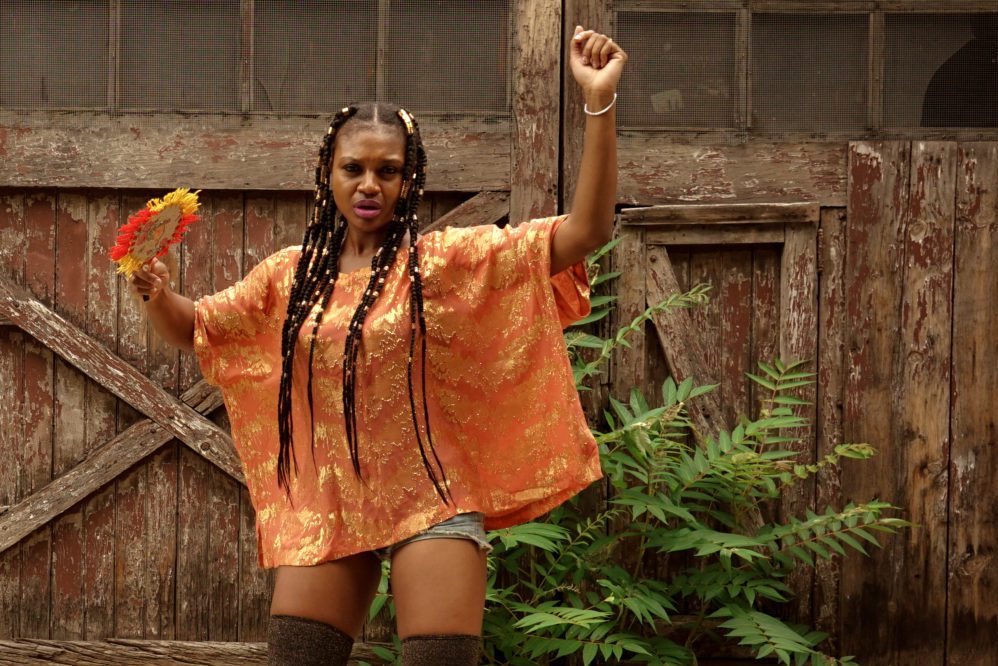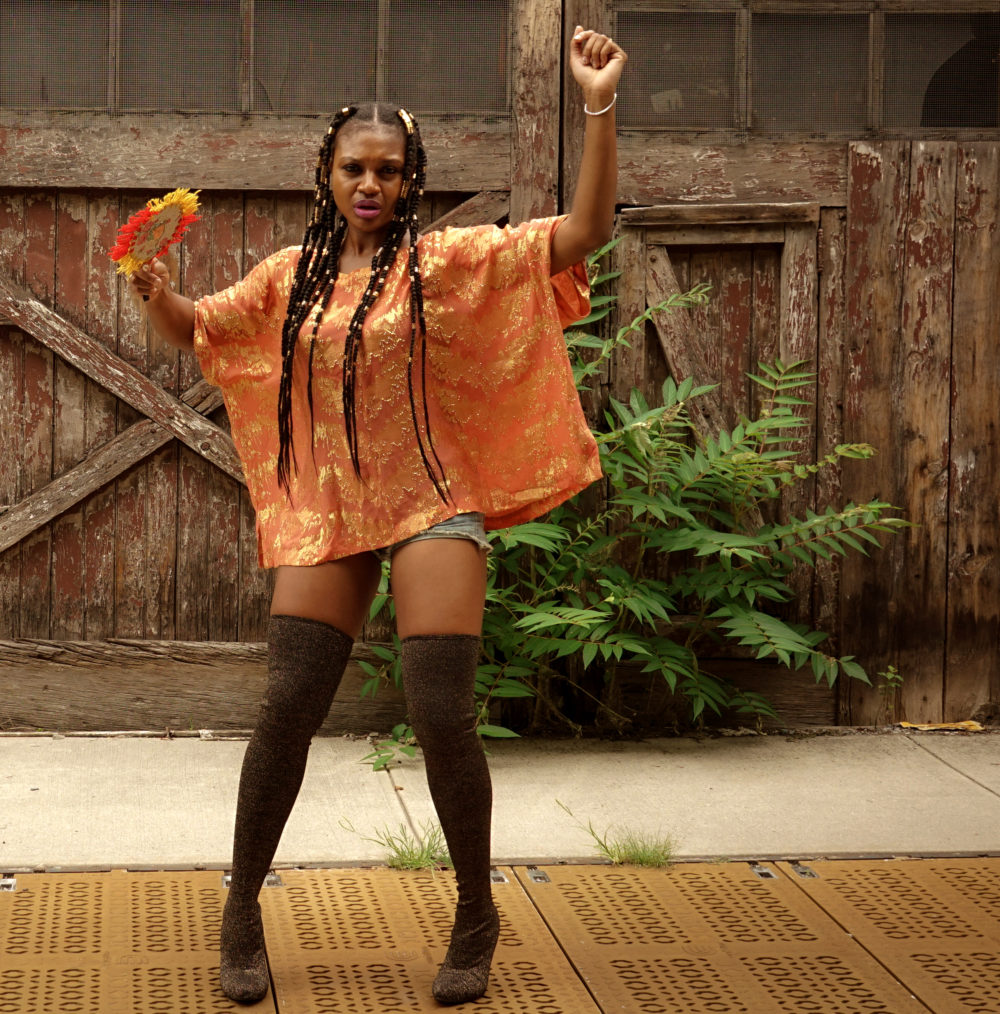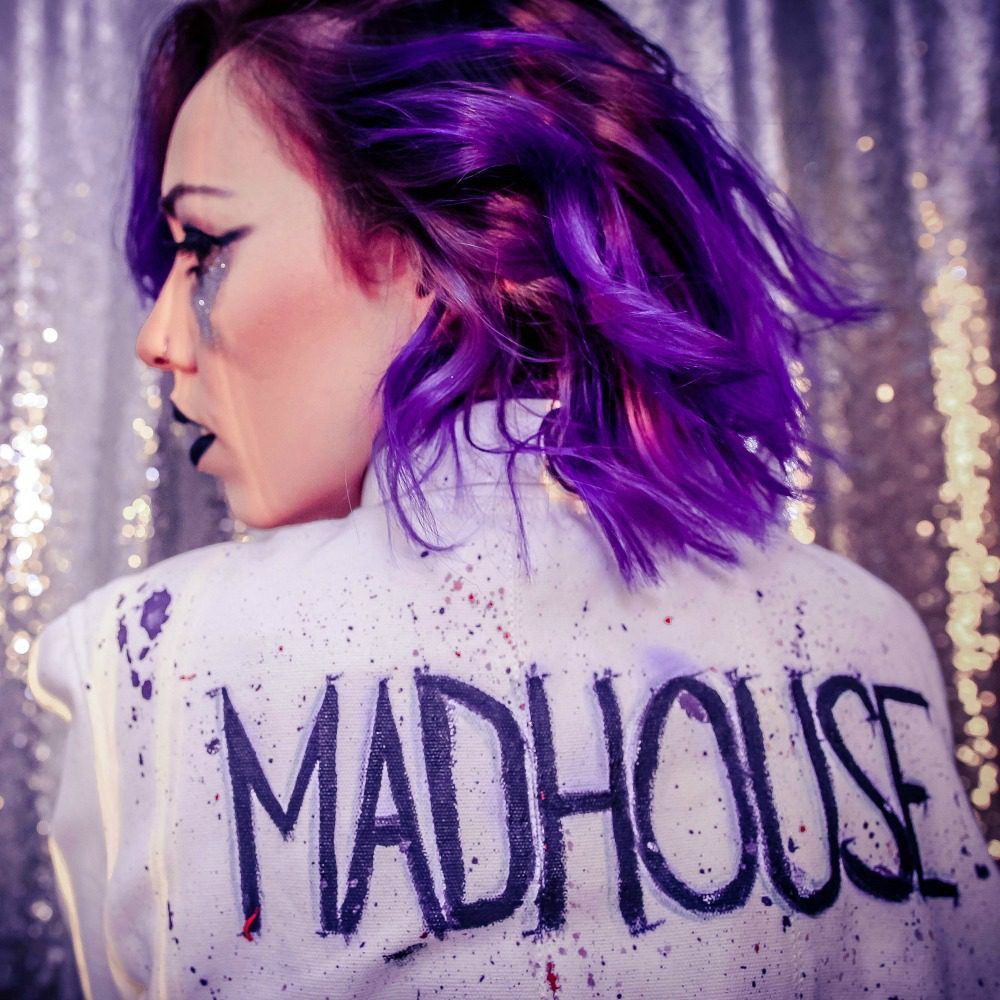Edoheart Spreads Compassion and Nigerian Culture With ‘For the Love’ EP


Musician, poet, and artist Edoheart grew up in Nigeria with music all around her. “My parents went to music shows, there were just parties around, there would be traveling musicians,” she remembers. “As a kid, I started to develop rhythm and a sense of harmonies.” When she moved to Detroit, she began listening to hip-hop and top-40 pop, which inspired her to write her own songs. She studied poetry and visual art in college and began collaborating with producers, until she realized she could do it better herself and began producing her own music.
Although she speaks in an American accent, Edoheart makes a point to sing in pidgin English as a nod to her culture of origin. “There’s a spiritual dimension that feels unlocked when I am in my accent,” she says. “The other thing I’m bringing is this sense of theater that is so, so, so Nigerian. I’m really given to telling stories and inhabiting characters, even if just lyrically.”
Her latest EP, For the Love, follows 2019 full-length Okada 8000 and features a variety of genre-defying songs that span both light and dark subjects. “Rogie (Oh No),” a love song with dynamic percussion and electronically altered vocals, begins the EP. The fun, uplifting “Seesaw” sounds like the backdrop to a summer party, with whimsical, humorous lyrics like “One foot in, one foot out / but she don’t like cucumber.” In the flirtatious “Do Me,” she sings, “You are so crazy / won’t you do me do me do me.” In “I Will Be There,” she sings a promise of friendship: “Anytime when you want me / I go come running / for the sake of the love.”
“Original Sufferhead,” the latest single off the album, is a bit darker than the rest. The title is borrowed from a Nigerian phrase for “a person who has been staked out for suffering,” she explains. “It is their job, responsibility, position — suffering is just heaped on their head. Then there’s the word ‘original’ in front of it because there’s an authenticity and a de-facto-ness to their level of suffering, kind of like it’s God-ordained.”
Edoheart wrote the song as a reflection on the seemingly endless hardships thrown into her life path, including several miscarriages and an illness in her family. “That song is about my life being so fucking hard, and I just keep going through it, keep pushing past it,” she says. She cried during her first recording of the track and tried recording it several more times, but she ultimately kept the first version because it sounded the most authentic.
“Original Sufferhead” is Edoheart’s most Shazammed song and one people tend to relate to when she plays it. “It’s a universal song,” she says. “Sometimes, we find that you’ll say the most honest, bare-bones thing about yourself, and so many people will be like, ‘Oh, my God, me fucking too.'”
The video was meant to visually represent a journey from darkness to light, as Edoheart starts off in the basement of a record store, climbs her way up to the main floor, then finds her way outside as she sings, “Let me tell you I’m a fighter / let me tell you I’m a struggler.”
All in all, she hopes the album spreads compassion and unity in a world that’s often divided. “There is so much hate, there is so much ‘how dare you have a different perspective from me?'” she says. “And yet if we hear somebody say, ‘I have to fight and struggle to stay alive because I’m sad,’ or ‘I had it rough’ or something, so many of us are like, ‘Oh, my God, me too.’ There’s this gulf between all of us having literally similar experiences, similar emotions, and yet because we belong to different political parties, because we have different skin colors, because we come from different parts of the world, we allow this rhetoric of us vs. them, this oppositional binary, white vs. black — these things are such fallacies.”
Edo, the Nigerian people Edoheart comes from and takes her name from, actually means “love,” she adds. “I hope that simply by being an Edoheart, by being somebody who loves to think about love and made an EP about love, that people are like, ‘Yeah, let’s talk about that. How do we achieve that? What does it mean to build a society that’s based upon love?”
Follow Edoheart on Facebook for ongoing updates.




